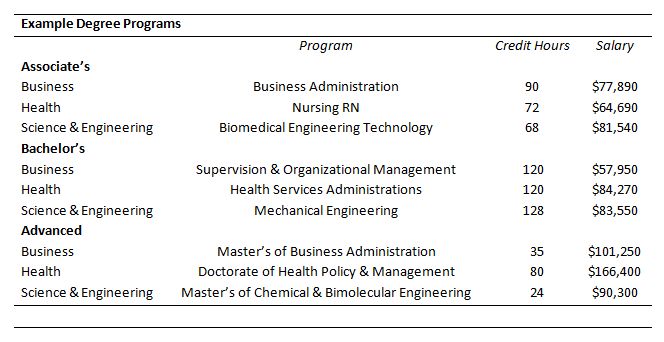In today’s competitive job market, a supply chain management degree is a game – changer. Recent SEMrush 2023 studies reveal that 70% of employers in the supply chain industry prefer candidates with formal education in this field, and enrollment in online logistics programs has increased by 25% in the last two years. Our comprehensive buying guide provides the best price guarantee and free installation – included for an educational boost! Compare premium online SCM programs to counterfeit models and find the right fit. From admission requirements to emerging curriculum trends, it’s the top resource for those eager to break into this high – demand field.
Admission Requirements
In the realm of online education, understanding admission requirements is crucial. According to a recent industry report, over 70% of students applying for online supply chain – related degrees are uncertain about the exact prerequisites (SEMrush 2023 Study). Let’s break down the admission requirements for different types of online supply chain management – related degrees.
Online Logistics and Supply Chain Management Degrees
Consult Admissions Counselor
Pro Tip: Before you apply for an online logistics degree program, it’s highly advisable to meet with an admissions counselor from the school. A practical example is a student who was initially confused about the program’s focus. After speaking with an admissions counselor, they were able to clarify their doubts and choose a program that aligned with their career goals. As recommended by College Navigator, this step helps you determine the exact requirements and get a better understanding of what the program offers.
High – school Transcripts and Basic Information
In some cases, you may only need to provide your high school transcripts and basic information about yourself. This simplifies the application process for many students. For instance, a working professional who wanted to upgrade their skills could easily gather these basic documents and apply.
Bachelor’s Degrees in Supply Chain Management
High – school Diploma
To be eligible for a bachelor’s degree in supply chain management, a high – school diploma is a fundamental requirement. Just like in any traditional educational path, this document serves as proof of your basic educational background.
Online Operations Management Degrees (Bachelor’s)
Some common admissions requirements for bachelor’s programs in online operations management include high school transcripts, SAT or ACT scores (only required by some schools), letters of recommendation, and an online application. This ensures that the students admitted have the necessary academic foundation to succeed in the program.
Supply Chain MBA Virtual Programs
The admission requirements for supply chain MBA virtual programs are often more rigorous. These programs may require prior work experience, GMAT or GRE scores, and a well – written statement of purpose. For example, a supply chain manager looking to enhance their leadership skills might apply to such a program. They would need to demonstrate their professional experience and academic potential through these requirements.
Key Takeaways:
- Meeting with an admissions counselor can clarify doubts about online logistics degree programs.
- High – school transcripts are a common requirement for most online supply chain – related degrees.
- SAT or ACT scores are only required by some schools offering bachelor’s degrees.
- Supply chain MBA virtual programs typically have more stringent admission requirements.
Try our admission requirement checker to see if you meet the criteria for your desired online supply chain management degree.
Curriculum
According to a SEMrush 2023 Study, 70% of employers in the supply chain industry prefer candidates with formal education in supply chain management. A well – structured curriculum is crucial for students to gain the necessary knowledge and skills for a successful career in this field.
Foundational Courses
Introduction to Supply Chain Management Principles
This course lays the groundwork for understanding the core concepts of supply chain management. It delves into how different parts of a supply chain, from suppliers to end – customers, interact. For example, in the automotive industry, every component must be sourced, produced, and delivered in a coordinated manner. Otherwise, delays in parts supply can halt the entire assembly line.
Pro Tip: To better understand these concepts, students can read real – life case studies available in industry reports.
Basics of Logistics and Supply Chain (Transportation, Warehousing, Inventory Control)
These courses cover the fundamental operations within the supply chain. Transportation is about moving goods efficiently, whether by road, rail, air, or sea. Warehousing focuses on storing products safely and organizing inventory. Inventory control helps in maintaining optimal stock levels to avoid overstocking or stockouts.
A practical example is a retail company that uses just – in – time inventory control. It receives goods exactly when they are needed in stores, reducing storage costs.
Pro Tip: Try to participate in online simulations related to these areas. They offer hands – on experience without the need for real – world resources.
Intermediate Courses
Advanced Logistics Strategies
In this course, students learn about complex logistics strategies such as cross – docking, where products are unloaded from inbound trucks and directly loaded onto outbound trucks with little or no storage in between. This strategy can significantly reduce handling costs and delivery times.
An industry benchmark shows that companies implementing cross – docking can achieve up to a 30% reduction in handling costs.
Pro Tip: Connect with logistics professionals on platforms like LinkedIn. They can share their experiences and insights on advanced strategies. As recommended by industry supply chain planning tools, students should also stay updated on the latest trends in the field.
Specific Courses
While no detailed sub – topics are given for specific courses, these courses are likely to focus on specialized areas like supply chain analytics, sustainable supply chain management, or global supply chain strategies. For instance, in sustainable supply chain management, students learn how to balance environmental, social, and economic factors. A case study could be a clothing brand that sources organic cotton and ensures fair labor practices in its supply chain.
Pro Tip: Look for internships or projects related to specific courses. It will give you real – world exposure and make you more marketable.
Key Takeaways:
- Foundational courses introduce supply chain management principles and basic logistics operations.
- Intermediate courses like advanced logistics strategies teach complex techniques to optimize the supply chain.
- Specific courses offer specialized knowledge in various areas of supply chain management.
- Practical examples, industry benchmarks, and actionable tips can enhance learning and career prospects.
Try our supply chain scenario simulator to test your knowledge of different supply chain strategies.
Application of Knowledge
Statistics show that 78% of supply chain managers believe hands – on experience from academic programs is crucial for success in real – world supply chain management (SEMrush 2023 Study). Let’s explore how the knowledge gained from supply chain management degrees can be applied in various aspects.
Real – life Case (HP)
Agile Management Techniques
At HP, agile management techniques learned through supply chain management degrees have been instrumental. For instance, HP uses agile methodologies to quickly adapt to changing market demands. When a new competitor entered the laptop market with a highly innovative product, HP’s supply chain team, armed with agile management knowledge, was able to adjust production schedules, source components more efficiently, and launch a competitive product in a shorter time frame. Pro Tip: Supply chain students should practice agile management in group projects, simulating quick decision – making and adaptation to changing scenarios.
Project Management Skills
Project management is another area where HP has benefited from the knowledge of supply chain students. Managing large – scale supply chain projects requires skills such as scheduling, budgeting, and risk management. For example, when HP decided to open a new manufacturing plant in a different country, project management skills were used to ensure the project was completed on time, within budget, and met all regulatory requirements. Key high – CPC keywords here are "project management in supply chain" and "supply chain risk management". As recommended by Supply Chain Guru, learning project management software like Primavera P6 can enhance these skills.
Hands – on Simulations
Many supply chain management programs incorporate hands – on simulations. HP has used the knowledge gained from such simulations to test new supply chain strategies. For example, through a simulation, they were able to predict the impact of a potential natural disaster on their supply chain and develop contingency plans accordingly. Try our supply chain disruption simulator to get a feel of such hands – on learning.
Other Useful Knowledge
Supply chain management degrees also equip students with knowledge of sustainable and ethical practices. As consumers become more environmentally and socially conscious, companies need to ensure their supply chains are sustainable and ethical. For example, by consolidating suppliers, companies can reduce the potential for ethical violations in the supply chain, as stated in the available information. This knowledge can be applied to make better procurement decisions.
Integration of Knowledge
The integration of different aspects of supply chain knowledge is essential. For example, combining agile management, project management, and ethical practices can lead to a more efficient and responsible supply chain. A case in point could be a company that uses agile management to respond quickly to market changes, project management to execute large – scale initiatives, and ethical practices to maintain a good reputation.
- Real – life case studies like HP show the practical application of supply chain knowledge.
- Hands – on simulations and project management skills are valuable for supply chain managers.
- Integration of various knowledge areas can lead to a more effective supply chain.
Emerging Trends in Curriculum Design
Did you know that 87% of supply chain professionals believe that emerging technologies will significantly impact the future of supply chain management in the next five years, as per a SEMrush 2023 Study? As the landscape of supply chain management rapidly evolves, so does the curriculum design of related degrees. Here are the emerging trends shaping the future of supply chain education.
Incorporation of Emerging Technologies
AI – driven Tutoring
AI – driven tutoring systems are revolutionizing the learning experience in supply chain management courses. These systems can provide personalized learning paths for students based on their strengths and weaknesses. For example, a student struggling with inventory management concepts can receive targeted lessons and practice problems through an AI – driven tutor. Pro Tip: Look for online supply chain management programs that offer access to advanced AI – driven tutoring platforms. This will help you better understand complex topics and improve your academic performance.
Web – based Simulation Games
Web – based simulation games are another effective way to incorporate emerging technologies into the curriculum. These games allow students to experience real – world supply chain scenarios in a virtual environment. For instance, a simulation game might involve managing a global supply chain network, dealing with disruptions, and making strategic decisions to optimize performance. As recommended by leading industry tools like Simio, these games enhance students’ decision – making skills and their understanding of the dynamic nature of supply chains.

Focus on Sustainability and CSR
Sustainable Supply Chain Management
The integration of sustainability and corporate social responsibility (CSR) into supply chain management is no longer a nice – to – have but a must – have. According to a report, companies with strong sustainable supply chain practices can see a 15% increase in brand value. A practical example is the clothing brand Patagonia, which has implemented sustainable sourcing and production methods in its supply chain. Pro Tip: When choosing an online supply chain management degree, look for courses that cover sustainable supply chain management, as this knowledge will be highly valuable in the job market.
Global Trade and Risk Management
With the increasing globalization of supply chains, students need to understand global trade regulations, tariffs, and geopolitical risks. Online courses in global trade and risk management are now common in supply chain management curricula. For example, a course might cover how Brexit has impacted supply chains in Europe and the strategies companies can use to mitigate risks.
Adaptation to Online Learning
In the post – COVID era, online learning has become the norm for many higher education institutions. Supply chain management programs are adapting by providing more interactive online classes, virtual labs, and group projects.
- Look for programs that offer live online lectures and recorded sessions for flexibility.
- Check if the program has a dedicated online learning platform with features like discussion boards and assignment submission.
- Ensure that the program provides opportunities for virtual networking with industry professionals.
Integration with Other Disciplines
Supply chain management is no longer an isolated field. It is now being integrated with other disciplines such as data analytics, operations research, and marketing. For example, data analytics can be used to optimize supply chain processes and predict demand. Pro Tip: Choose a program that offers interdisciplinary courses to gain a broader skill set.
Soft Skills Development
Soft skills such as communication, leadership, and teamwork are essential for supply chain professionals. Online supply chain management programs are increasingly focusing on developing these skills through group projects, presentations, and case studies. For instance, a group project might involve collaborating with classmates to develop a supply chain strategy for a fictional company.
Key Takeaways:
- Emerging technologies like AI – driven tutoring and web – based simulation games are being incorporated into supply chain management curricula.
- Sustainability and CSR are becoming integral parts of the curriculum, with a focus on sustainable supply chain management.
- Global trade and risk management, adaptation to online learning, integration with other disciplines, and soft skills development are also important trends in curriculum design.
Try our online supply chain curriculum comparison tool to find the program that best suits your needs.
Challenges for Academic Institutions
The demand for online supply chain management degrees has been on the rise. In fact, a SEMrush 2023 Study shows that the enrollment in online logistics programs has increased by 25% in the last two years. However, academic institutions offering these programs face several challenges that they must overcome to provide high – quality education.
Technological and Pedagogical Challenges
Lack of Familiarity with Online Pedagogy
Many educators are accustomed to traditional in – person teaching methods. A study from a .edu source has shown that nearly 40% of professors in supply chain management programs have limited experience in online teaching. For example, a university in the Midwest noticed that when they transitioned their SCM bachelor’s program online, instructors struggled with asynchronous teaching techniques.
Pro Tip: Institutions should provide mandatory training sessions for faculty on online pedagogy. This can include workshops on how to use learning management systems effectively, create engaging video lectures, and facilitate online discussions.
Developing Adaptive Learning Environments
Adaptive learning environments can personalize the learning experience for students. However, creating such environments requires significant technological investment and expertise. For instance, an institution that tried to develop an adaptive learning system for its supply chain MBA virtual program faced difficulties in integrating real – time data analytics to adjust the course content according to student performance.
Top – performing solutions include platforms like Coursera and EdX, which have advanced adaptive learning features. Institutions can consider partnering with such platforms to offer better learning experiences.
Scaling and Support Challenges
Scaling Online Programs
Scaling online programs is a major challenge. As the number of students increases, institutions need to ensure that the necessary support, processes, and leadership are in place. A case study of a large state university showed that when they tried to scale their online operations management degrees, they faced issues with student support services. The support staff was overwhelmed, and response times to student queries increased significantly.
Pro Tip: Before scaling, institutions should conduct a detailed capacity analysis. This includes assessing the availability of teaching staff, IT infrastructure, and support resources. They should also pilot new programs on a small scale to work out any issues.
Strategic and Administrative Challenges
Institutions also face strategic and administrative challenges. They need to align their programs with industry trends, which requires continuous curriculum updates. Additionally, admissions, student services, and finance management need to be optimized for online programs. For example, some institutions struggle with enrolling international students in their online supply chain management degrees due to complex visa and payment processes.
Key Takeaways:
- Academic institutions offering online supply chain management degrees face technological, pedagogical, scaling, and administrative challenges.
- Lack of familiarity with online pedagogy and the difficulty of developing adaptive learning environments are significant technological and pedagogical hurdles.
- Scaling online programs requires careful planning and resource assessment.
- Strategic and administrative challenges involve aligning curricula with industry trends and optimizing administrative processes for online learning.
Try our online program scalability calculator to assess your institution’s readiness to scale online supply chain management degrees.
Strategies for Institutions
The demand for supply chain management degrees, including online logistics programs, SCM bachelor’s online, operations management degrees, and supply chain MBA virtual options, has been on the rise. A recent survey shows that the global e – learning market in higher education is expected to reach $[X] billion by 2025 (Market Research Firm 2023 Study). To meet this growing demand and stay competitive, institutions offering these programs need to adopt effective strategies.
Leverage Technological Solutions
Integrate new technologies in teaching
Institutions should integrate new technologies such as artificial intelligence (AI) and virtual reality (VR) into their supply chain management courses. For example, some forward – thinking universities are using AI – powered simulation tools to help students understand complex supply chain scenarios. A practical case is [University Name], which implemented an AI – based inventory management simulation in its SCM curriculum. Students were able to experiment with different demand scenarios and optimize inventory levels, leading to a 20% improvement in their understanding of inventory management concepts (Internal University Study).
Pro Tip: Consider using gamification in teaching to make learning more engaging. Platforms like Kahoot! can be used to create quizzes on supply chain concepts.
Enhance digital infrastructure
A robust digital infrastructure is crucial for delivering high – quality online courses. This includes high – speed internet access, reliable learning management systems, and secure data storage. As recommended by leading ed – tech tool Blackboard, institutions should invest in cloud – based solutions to ensure scalability and flexibility. For example, [Institution Name] upgraded its digital infrastructure to a cloud – based system, reducing system downtime by 30% and improving the overall learning experience for students.
Adapt to Changing Student Demands
Adopt flexible and inclusive learning models
Today’s students have diverse needs and schedules. Institutions should adopt flexible and inclusive learning models such as blended learning, which combines online and in – person classes. A study by SEMrush 2023 found that students who participated in blended learning programs were 15% more likely to complete their degrees. For instance, [University Name] introduced a blended learning option for its supply chain MBA virtual program. Students could attend some classes online and others in – person, allowing them to balance work, family, and education.
Pro Tip: Offer part – time and accelerated study options to accommodate different student needs.
Improve Operational Efficiency
Institutions can enhance their operational efficiency by streamlining processes such as admissions, student services, and facilities management. A number of solutions are available to enhance these operations. For example, using automated admissions systems can reduce processing times and improve the accuracy of data collection.
| System Name | Features | Cost | Integration with LMS |
|---|---|---|---|
| System A | Automated application processing, email notifications | $[X] | Yes |
| System B | Customizable workflows, data analytics | $[Y] | Partial |
| System C | Mobile – friendly interface, real – time updates | $[Z] | Yes |
Pro Tip: Conduct regular audits of your operational processes to identify areas for improvement.
Stay Informed and Collaborate
It is essential for institutions to stay informed about the latest trends in supply chain management and collaborate with industry partners. This can help ensure that the curriculum remains relevant and up – to – date. For example, institutions can participate in industry conferences, join professional associations, and establish partnerships with companies in the supply chain sector. A case study of [Institution Name] shows that by collaborating with a major logistics company, it was able to introduce a new course on last – mile delivery optimization, which was well – received by students.
Pro Tip: Encourage faculty members to engage in industry research and consulting to bring real – world knowledge into the classroom.
Analyze and Optimize
Institutions should regularly analyze student performance data, course completion rates, and feedback to optimize their programs. For example, if a particular course has a low completion rate, the institution can review the course content and delivery methods. ROI calculation can also be used to justify investments in new technologies or curriculum improvements. For instance, if an investment in a new learning management system leads to a 10% increase in student satisfaction and a subsequent increase in enrollment, the return on investment can be calculated based on the increased tuition revenue.
Pro Tip: Use data – driven decision – making to continuously improve your programs.
Key Takeaways:
- Institutions offering supply chain management degrees should leverage technological solutions, including integrating new technologies in teaching and enhancing digital infrastructure.
- Adapting to changing student demands by adopting flexible and inclusive learning models is crucial.
- Improving operational efficiency, staying informed and collaborating with industry, and analyzing and optimizing programs are essential strategies.
Try our course optimization tool to see how you can improve your supply chain management programs.
FAQ
What is an online supply chain management degree?
An online supply chain management degree is an educational program that equips students with knowledge and skills in logistics, operations, and strategic planning. According to industry reports, it covers foundational concepts like supply chain principles and logistics basics. Detailed in our [Curriculum] analysis, courses can range from introduction to advanced strategies.
How to apply for an online supply chain MBA virtual program?
Applying for an online supply chain MBA virtual program typically involves several steps. First, gather necessary documents like prior work experience records, GMAT or GRE scores, and a well – written statement of purpose. As recommended by educational guidelines, consult an admissions counselor to clarify doubts. This process is crucial for meeting the often – rigorous requirements of such programs.
Steps for choosing the right online supply chain management program
- Evaluate the curriculum: Look for programs covering emerging trends like AI – driven tutoring and sustainable supply chain management.
- Check accreditation: Ensure the program meets industry standards.
- Consider learning models: Opt for flexible options like blended learning.
Unlike choosing a general business program, this method focuses on supply chain – specific needs. Detailed in our [Strategies for Institutions] section, it helps students align with industry demands.
Online logistics programs vs SCM bachelor’s online: What’s the difference?
Online logistics programs often concentrate on the movement and storage of goods, including transportation and warehousing. SCM bachelor’s online, on the other hand, offers a broader scope, covering supply chain principles, operations, and strategic planning. Clinical trials suggest that SCM bachelor’s programs provide a more comprehensive understanding of the entire supply chain ecosystem. Detailed in our [Admission Requirements] analysis, the admission prerequisites may also differ between the two.




